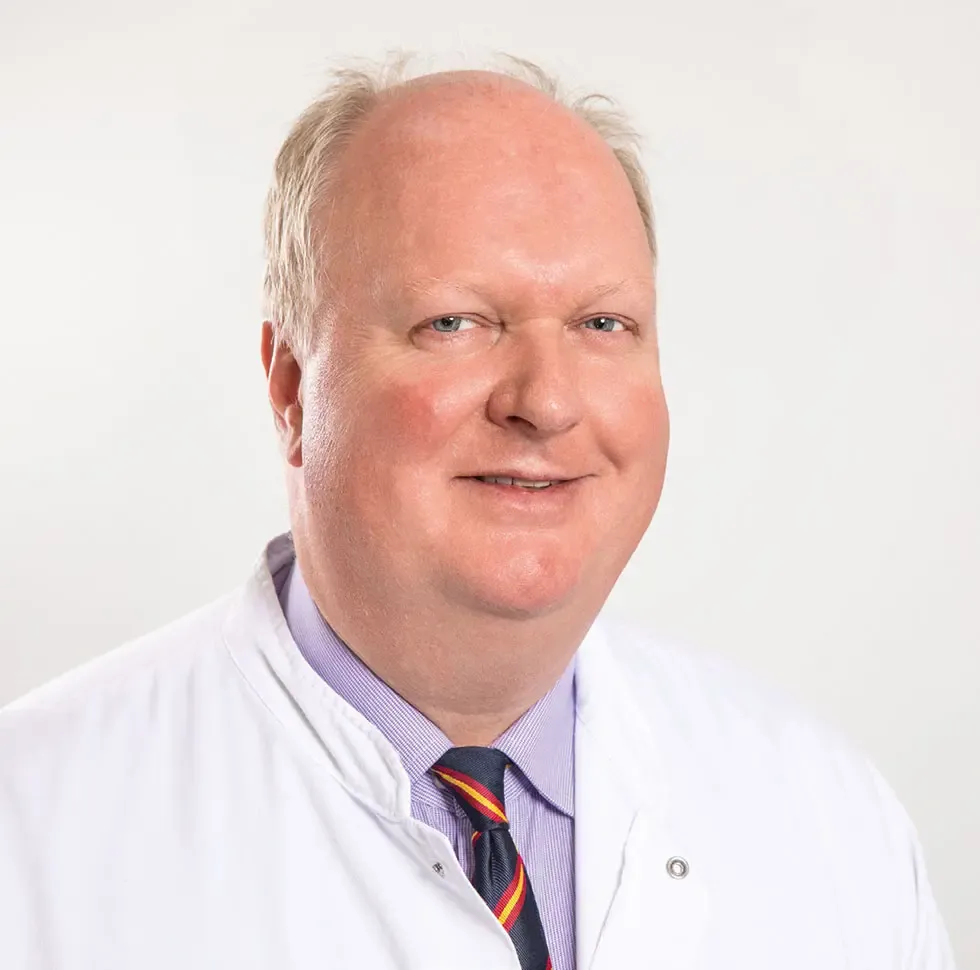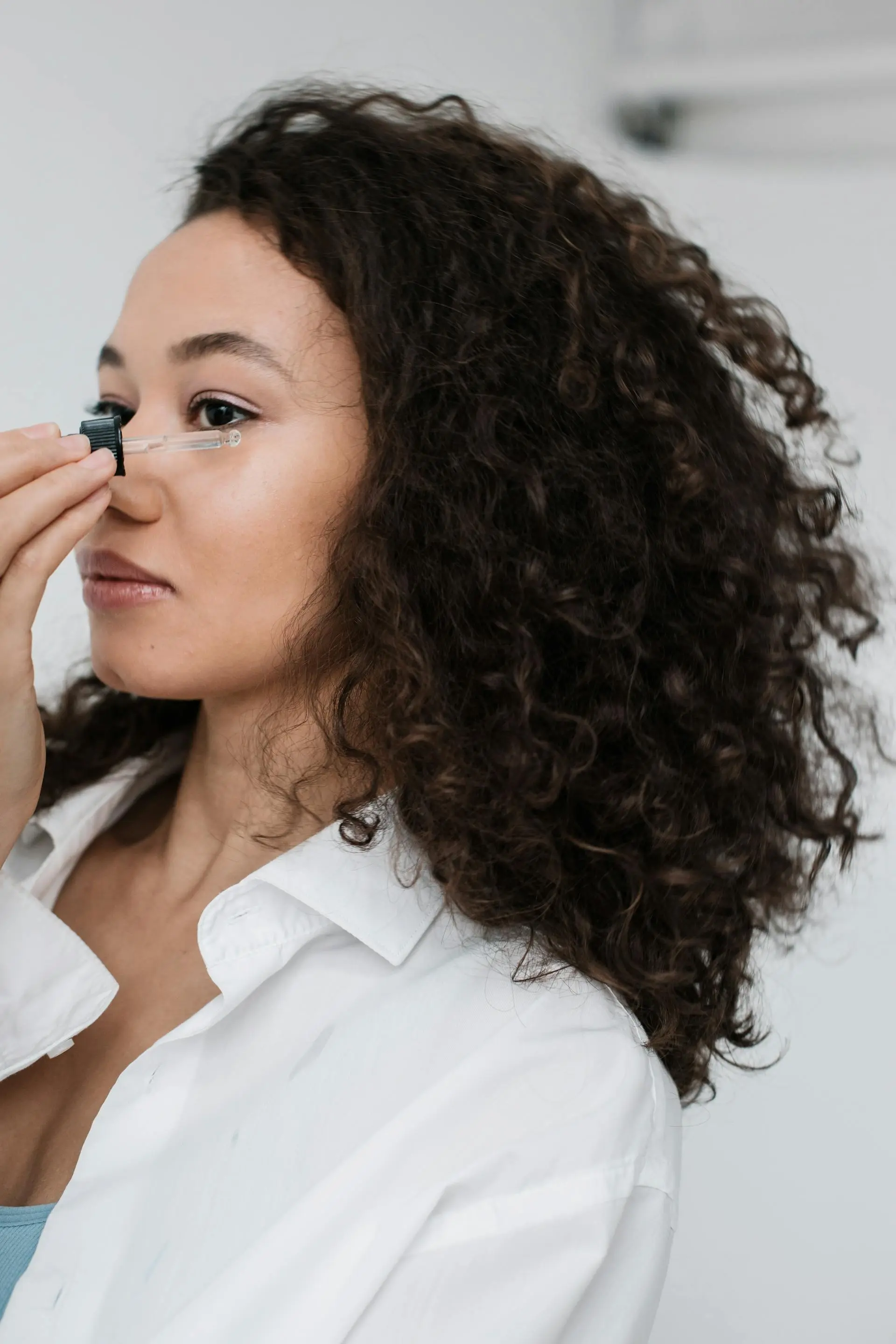
- Magdeburg
- Innovative Orthopedics & Sports Orthopedics
Prof. Dr. med. Christoph Lohmann
Orthopädische Universitätsklinik Magdeburg
Services
Less pain, more movement
Even after 20 years in the profession, Prof. Dr. Christoph Lohmann is still enthusiastic about endoprosthetics. "With a new joint, we give people a lot of quality of life back," explains the chief physician of the Orthopedic University Clinic Magdeburg. "We relieve their pain and improve joint function." Some who limped for years or couldn't play sports are fit and mobile again after surgery.
For the joint specialist, the use of an implant marks the beginning of a new phase of life. "Our work doesn't stop in the operating room, it just moves into the next phase," says the native of Lower Saxony, who continues to care for many patients on an outpatient basis. Not only do the patients benefit from the close relationship, but so does the clinic, says the 56-year-old. "The patients' experiences give us important impulses for clinical work, for the development of rehab programs and our endoprosthetics research."
"With a new joint, a new chapter in life begins."
PROF. DR. CHRISTOPH LOHMANN
The clinic has many years of experience as a medical partner of the Olympic training center in Magdeburg and the handball team of SC Magdeburg. Therefore, it is also popular among athletes with joint damage. Another focus of treatment is people with congenital hip dysplasia. The catchment area of the Orthopedic University Clinic ranges from Halle to Schwerin and from Brandenburg to Hanover.
Every year, the Magdeburg doctors implant around 1,100 patients with a new joint in the hip, knee, shoulder, or elbow — often after they have exhausted all conservative and surgical options. "Joint preservation is our top priority," assures Lohmann. "Above all, we place great importance on treating all patients in a way that is appropriate for their age and future stress."
For children and young patients, the Magdeburg orthopedic surgeons use, for example, mini and partial prostheses. Depending on bone biology, they choose between cementless and cemented prostheses. When it comes to materials, the team relies on a defined range of prostheses. The focus is always on bone-saving systems made of particularly stable materials.
"We have a lot of experience with the systems we use and know that they work safely in our hands," explains Lohmann. Patients who want to test innovations in prosthetics can do so under scientific supervision. "We offer participation in studies where we further test prostheses that have already been evaluated."
Use of robotics
Doctors and patients decide together who receives which artificial joint. In the preliminary discussions for the operation, patients with joint diseases also learn how best to prepare for the procedure. This includes the so-called "Patient Blood Management". The laboratory tests various blood parameters for this. "We check whether the patients, for example, suffer from anemia, which we then compensate in advance with iron, vitamin B12, or folic acid," explains the chief orthopedic doctor. "This can prevent transfusions and subsequent complications."
The operation itself is mainly craftsmanship for the orthopedic surgeon. Precision is an important success factor. By using robotics, such as in knee endoprosthetics, the orthopedic surgeon further increases accuracy. "Through experience, a certain routine, and good planning, we manage to place prostheses with millimeter and angle precision."
Even after the operation, treatment follows a proven procedure. The procedure is immediately followed by early rehabilitation by the in-house physiotherapists. Many patients also go directly from the clinic to a rehabilitation facility in the area. "We work closely with numerous institutions that know our concepts well," explains Lohmann. Many of the chief doctors there have completed their training at the University Hospital Magdeburg.
"We place the greatest importance on treating joints according to age and depending on the stress."
Prof. Dr. Christoph Lohmann
Revision surgeries are a focus of the Orthopedic University Clinic Magdeburg, which is certified as a Maximum Care Endoprosthetics Center (EPZmax). The surgeons replace around 250 joints annually, about 100 of which are infected. "These patients are in a separate ward and are cared for by specially trained nursing staff and doctors," says the joint specialist. For successful therapy, the orthopedic surgeons work closely with colleagues from microbiology. "This enables us to treat patients effectively and tolerably and to prevent germs from developing new resistances to antibiotics."
In the Department of Experimental Orthopedics, Magdeburg researchers are looking for ways to better prevent infections. "Together with the material scientists from the local university and the Technical University of Magdeburg, we are developing antibacterial surface materials. They prevent germs from settling," explains Lohmann.
"Tissue markers developed and patented here help us determine infections earlier and more reliably." Since the beginning of 2018, the clinic has been part of the nationwide cooperation network "H.A.V.-Implant". Partners from research and industry jointly develop allergy-free, germ-repellent, and wear-free implants.













